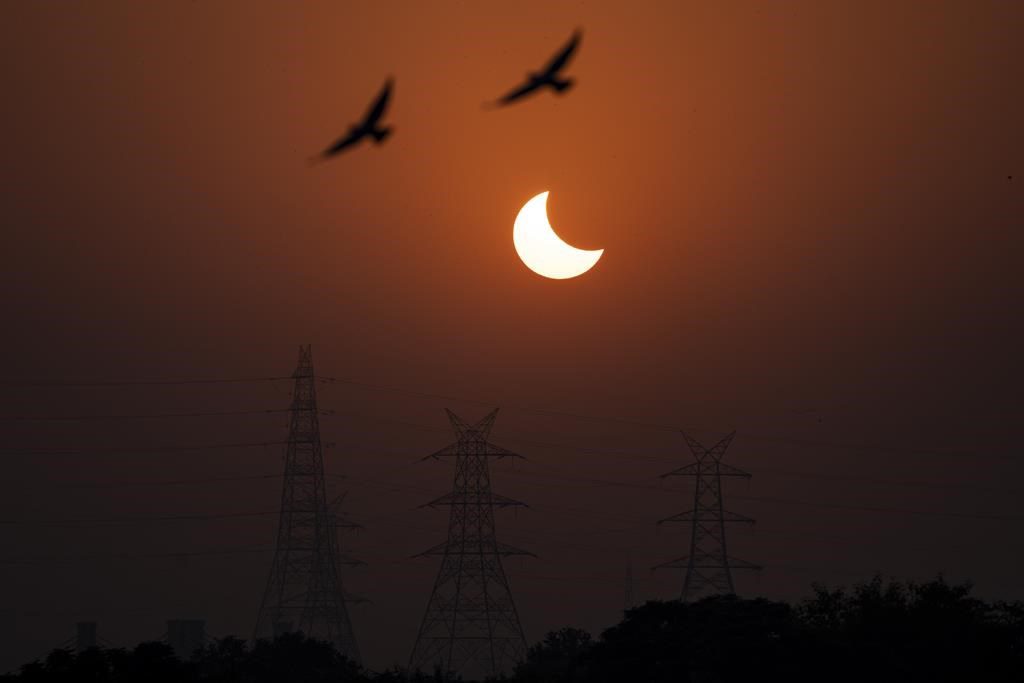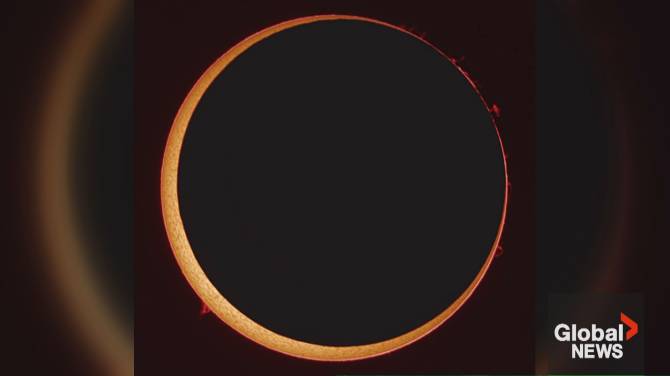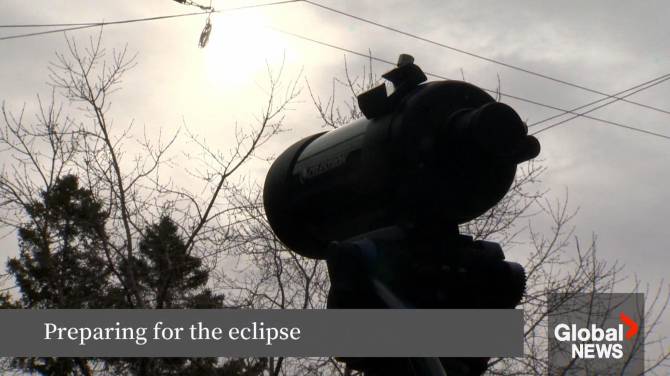When many people look up at the sun eclipse on Monday, Chelsea Paquette will be observing a pair of Asian Himalayan Black Bears instead.
Paquette works as a conservation co-ordinator at the Granby Zoo outside Montreal and is taking part in a study on how animals respond to an eclipse.
She doesn’t anticipate much from the bears.
“They move slowly, no doubt,” Paquette says. “They're also active at night, so we expect them to spend a lot of time sleeping.”
The zoo has chosen 12 species for the study. In total, there are 50 animals, including Red Pandas, snow leopards, zebras, and ostriches.
The study was suggested by a local astronomer, Pierre Chastenay, who will be observing the zoo’s community of 13 Japanese Macaque monkeys.
“They’re very social animals,” Chastenay says.
“So it will be interesting to look at their social interaction during the eclipse.”
This will be Chastenay’s fourth eclipse. He has traveled as far as Australia to witness the rare celestial event. However, the path of Monday’s eclipse runs directly over Chastenay’s home and the nearby zoo.
He tried to study animal behavior during an eclipse but found little information, so he proposed that the zoo conduct its own study.
“It will get very dark, similar to 30 to 45 minutes after sunset,” he says. “Temperatures will drop. The wind will pick up. Therefore, all these events will affect the animals' behavior.”
The teams have already been observing the animals. They've spent three hours on two days observing their normal behavior. They'll do the same two days after the eclipse to establish if the reaction during the eclipse differs from their usual behavior.
During the hours of observation, the researchers record each animal’s actions on an app every minute.
Paquette’s bears have not been very active.
“I’ve definitely noted the behavior 'relaxing' and 'sleeping' frequently,” she says.
The Granby Zoo is collaborating with the Fort Worth Zoo in Texas.
Dr. Adam Hartstone-Rose, a professor of biological sciences at North Caroline State University in Raleigh, is working with graduate students to study animals in Fort Worth.
Hartstone-Rose conducted a similar study during the 2017 eclipse.
In that study, his team observed 17 animals and noticed that about three-quarters seemed to have a noticeable reaction.
He says most animals displayed a circadian response. The darkness seemed to make them behave as if it were nighttime. Some went to their nighttime enclosures or feeding areas. Several animals also appeared to show signs of anxiety.
“The only time I’ve seen a giraffe running is when they’re startled by a predator or vehicle or something like that,” Hartstone-Rose says.
“And yet, in 2017, we saw the giraffe at the zoo start galloping. I mean, it was amazing.”
Another animal that reacted strongly was the zoo’s Komodo Dragon, the world’s largest lizard. It had not moved in the two days prior, but when the eclipse started, it ran around and climbed the walls of its enclosure.
Prior to that, Hartstone-Rose thought it might have been dead and didn’t expect it to move.
“I mean, it literally could have been a taxidermy mount. I wasn’t completely convinced it was still alive until the totality.”
Studying an eclipse is challenging because they don't happen often.
Hartstone-Rose mentions that there are more scientific research papers about Sasquatch than about animal behavior during an eclipse. He aims to reduce this gap with the findings of this project.
He doesn't mind being busy while millions of others are watching the sky.
He is more intrigued by animal behavior than the solar event.






